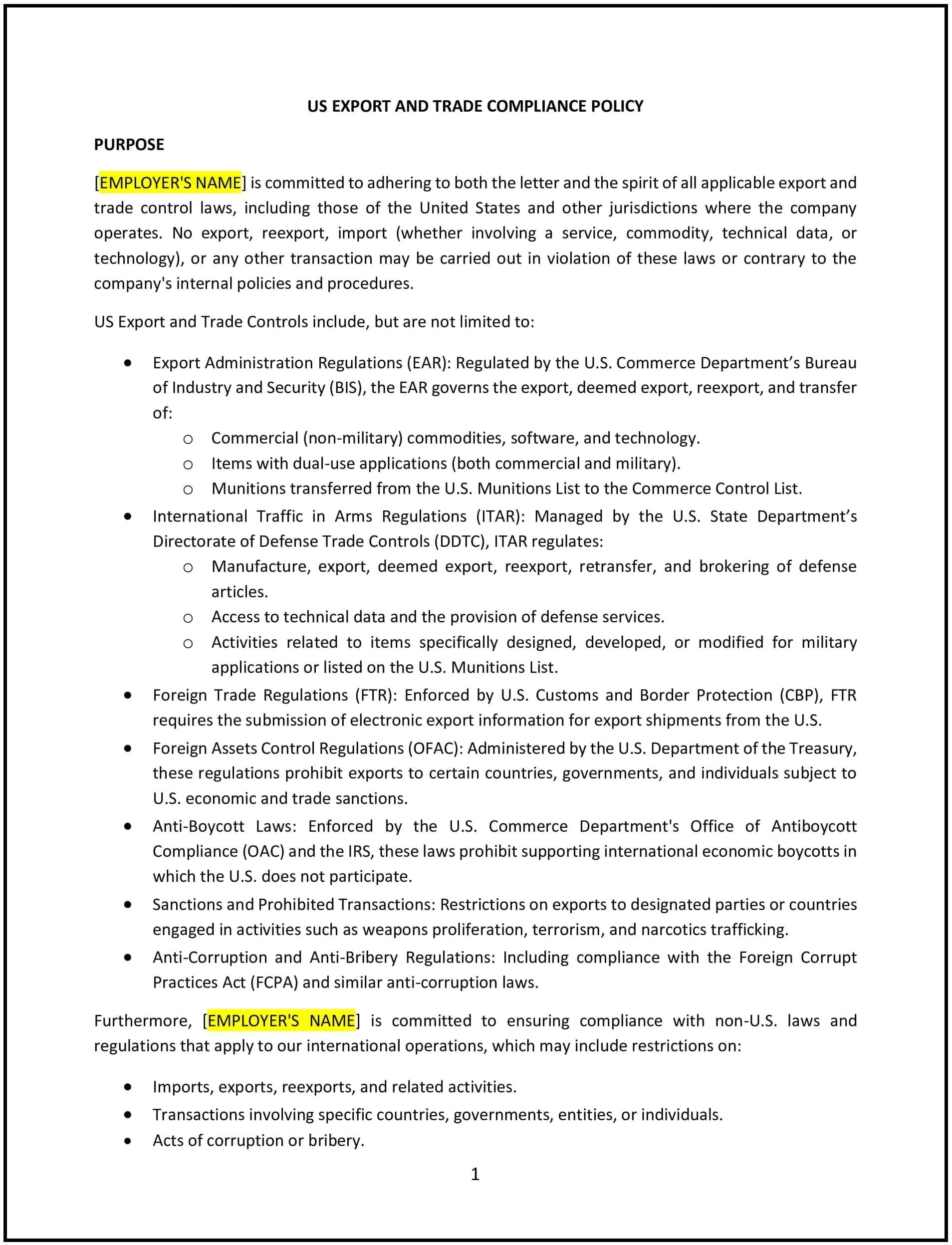US export and trade compliance policy (Nevada): Free template
Got contracts to review? While you're here for policies, let Cobrief make contract review effortless—start your free review now.

Customize this template for free
US export and trade compliance policy (Nevada)
This US export and trade compliance policy is designed to help Nevada businesses comply with federal export and trade laws, including the Export Administration Regulations (EAR) and International Traffic in Arms Regulations (ITAR). It provides clear guidelines to ensure legal compliance, minimize risks, and maintain ethical trade practices.
By adopting this policy, businesses can protect their operations from regulatory violations, promote responsible trade, and safeguard sensitive information.
How to use this US export and trade compliance policy (Nevada)
- Define covered activities: Outline the types of transactions, exports, or activities subject to US export and trade compliance laws, such as transferring goods, services, or technology internationally.
- Identify restricted parties: Include procedures for screening customers, suppliers, and business partners against restricted party lists to avoid prohibited transactions.
- Establish classification processes: Require employees to classify products, services, and technologies under the appropriate export control categories, such as EAR or ITAR.
- Include licensing requirements: Specify when export licenses are required and the steps to obtain necessary approvals.
- Address training and awareness: Provide regular training for employees on export compliance laws, policies, and best practices.
- Protect sensitive data: Emphasize the importance of safeguarding export-controlled information, such as through encryption and restricted access.
- Include reporting procedures: Require employees to report any suspected violations of export or trade compliance laws immediately to management or legal counsel.
- Monitor compliance: Implement regular audits or reviews to ensure adherence to export regulations and company policies.
Benefits of using this US export and trade compliance policy (Nevada)
This policy provides several benefits for Nevada businesses:
- Promotes legal compliance: Aligns with federal laws and reduces the risk of fines, sanctions, or reputational damage.
- Minimizes trade risks: Establishes clear processes to avoid prohibited transactions or violations.
- Protects sensitive information: Safeguards export-controlled data and intellectual property.
- Promotes ethical trade: Encourages responsible business practices in global markets.
- Supports operational efficiency: Streamlines processes for managing export and trade compliance activities.
Tips for using this US export and trade compliance policy (Nevada)
- Communicate the policy: Share the policy with employees, contractors, and partners involved in export or trade activities.
- Provide training: Offer mandatory training for employees on export regulations and compliance procedures.
- Use compliance tools: Leverage software solutions to automate restricted party screening and export license management.
- Maintain detailed records: Keep records of all export-related transactions, classifications, and licenses for audit purposes.
- Update regularly: Revise the policy to reflect changes in US export laws, Nevada business practices, or international trade agreements.